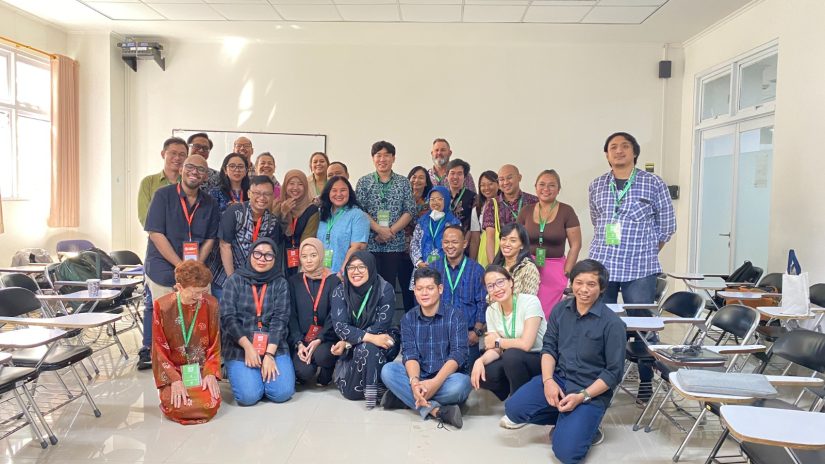
The presence of social media has changed many aspects of human life. It not only changes the meaning, but it also has the potential to call into question past history. Aware of the huge role that social media plays today, researchers who are also alumni of Cultural and Media Studies at Universitas Gadjah Mada (KBM UGM) attempted to abstract several phenomena, which were then presented at the AAS-In-ASIA forum on June 9, 2024. They participated in the panel “Social Media and Reshaping Cultural, Feminism, and Remembrance.”
Rivi Handayani, in collaboration with Finsensius Yuli Purnama, began the panel session with her research, “From Collective Memory to Meta-Memory: TikTok’s Dynamic Reshaping of the G30S PKI Incident Commemoration in Indonesia.” Taking the TikTok research space, Rivi and Finsensius discovered an interesting fact about TikTok content creators who are now using the G30S PKI theme. The G30S PKI, which was previously a dark phenomenon in the history of Indonesian society, has been parodied and presented in a more diverse way. The content about PKI on TikTok, which includes a variety of visual and textual elements, has transformed what was previously referred to as collective memory into metamemory. This phenomenon has opened up a fact about social media (especially TikTok), which, if used properly, can open up educational opportunities that can even change history. Because in this case, the G30S PKI event is not limited to genocide alone but also involves issues that have not been uncovered until now.
Continuing Rivi and Finsensius’ presentation, Chung Ji Pyo came up with a topic that dialogues between Korean culture and how it is contested in Indonesia. Through the research title “Discourses on Anti-Hallyu and Gender Conflict in Indonesia: An Analysis through Social Media Comments and Group Discussion,” Ji Pyo tries to outline the reasons behind the rejection of Korean culture (Hallyu) in Indonesia. His research process was conducted through social media searches and forum group discussions (FGDs). As a result, he discovered a variety of intriguing reasons for this, ranging from religious, economic, and stigmatizing motivations about Korean culture consumed by the public via social media. Another intriguing finding is that social media has created its own stigma in society regarding Korean culture, resulting in various rejections.
Following Ji Pyo’s findings on the stigma of Korean culture enriched by social media, Helen Diana Vida’s study is equally interesting. Titled “Liminal Feminism on Instagram: A New Paradigm of Feminism in Indonesia,” Helen outlines the development of women in feminism theory and takes a case study of female travelers on social media, especially Instagram. Helen refers to this as liminal feminism. Liminal feminism is a situation where women exist in an in-between space. She is not considered the “ideal” woman by society, but she is also different from most women. For example, a woman has a good job and higher education, but she is not considered ideal because she is not married or has no children. This case is clearly outlined when Helen talks about Trinity Traveler on Instagram. Trinity, who has become an empowered woman and traveled extensively, is not considered ideal because of her physical condition and unmarried status.
Through these three studies, we can conclude that social media plays a huge role in creating new perceptions in society. The convenience it brings can shape a new culture, lead certain opinions, and reconstruct history. This condition cannot be avoided, but in some cases, it can be used to criticize something.
Author: Laillia Dhiah Indriani
Photo: AAS Committee
SDG 5 (gender equality), SGD 9 (industry, innovation and infrastructure)
